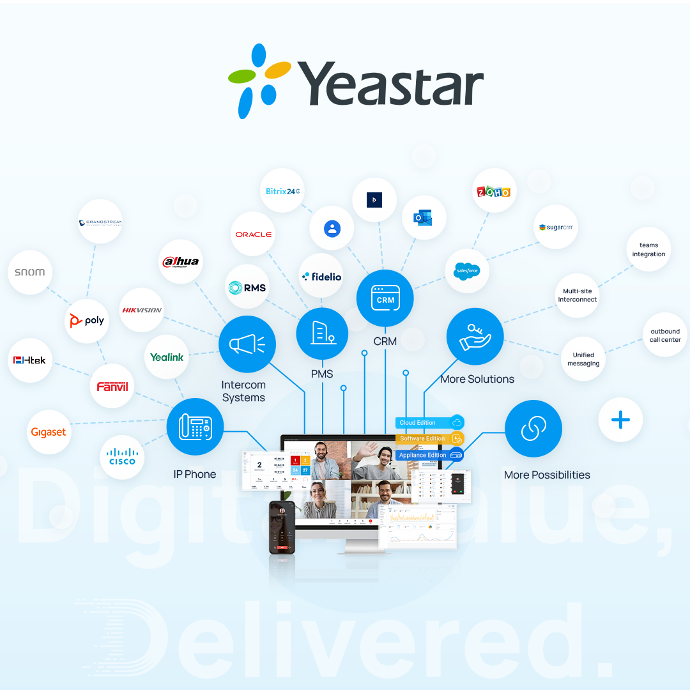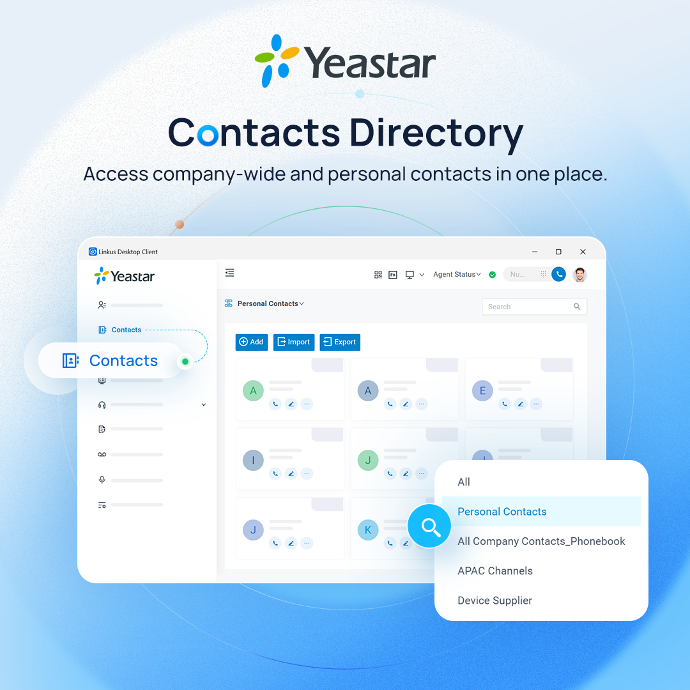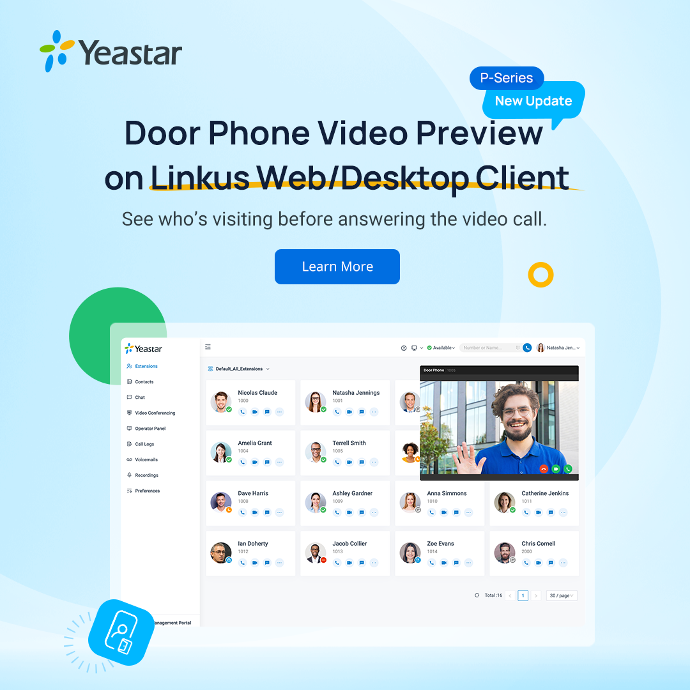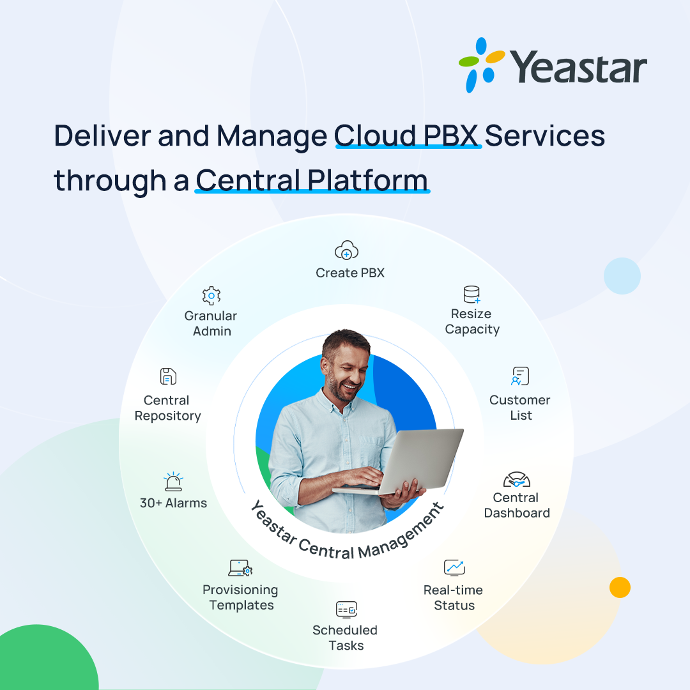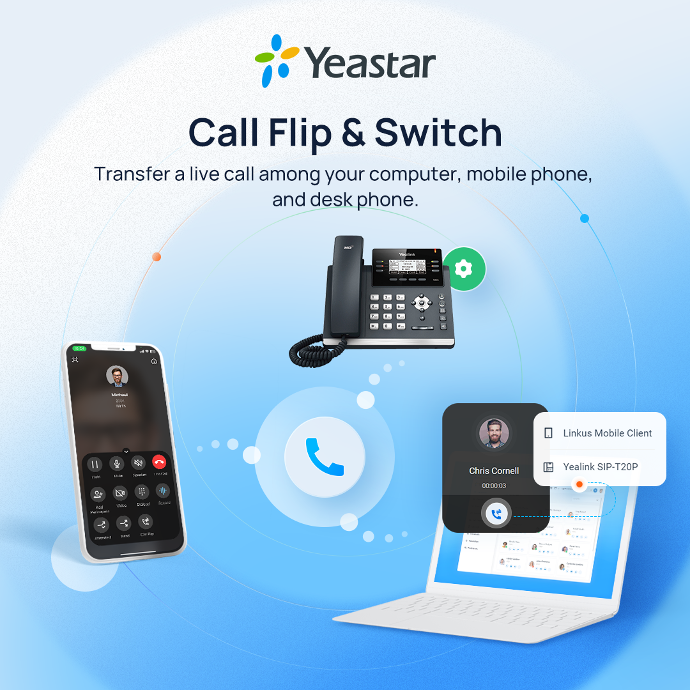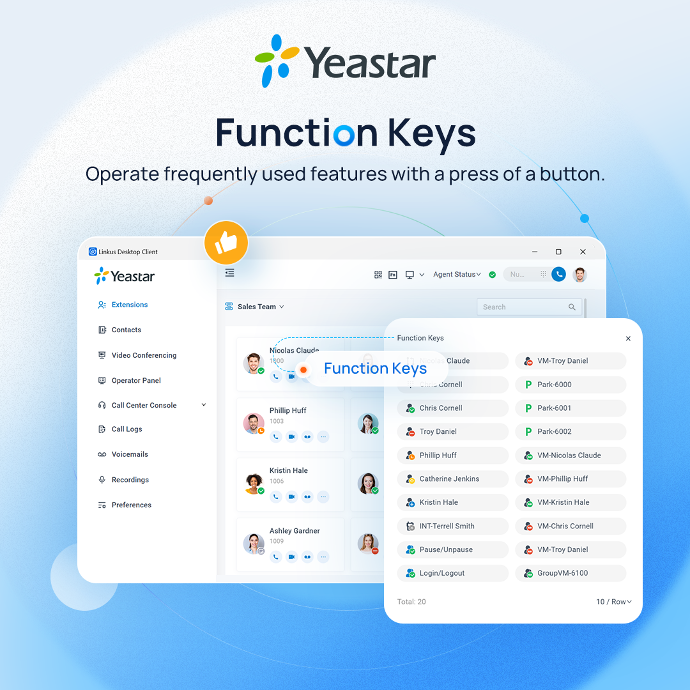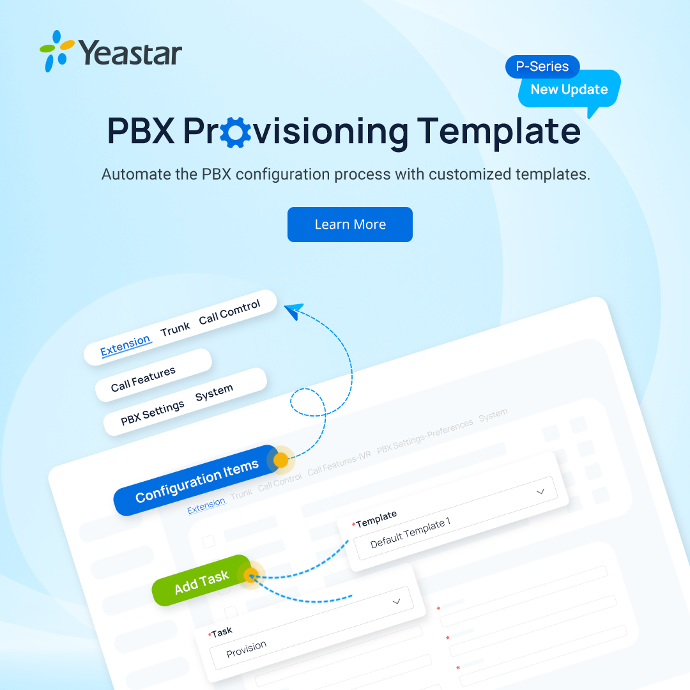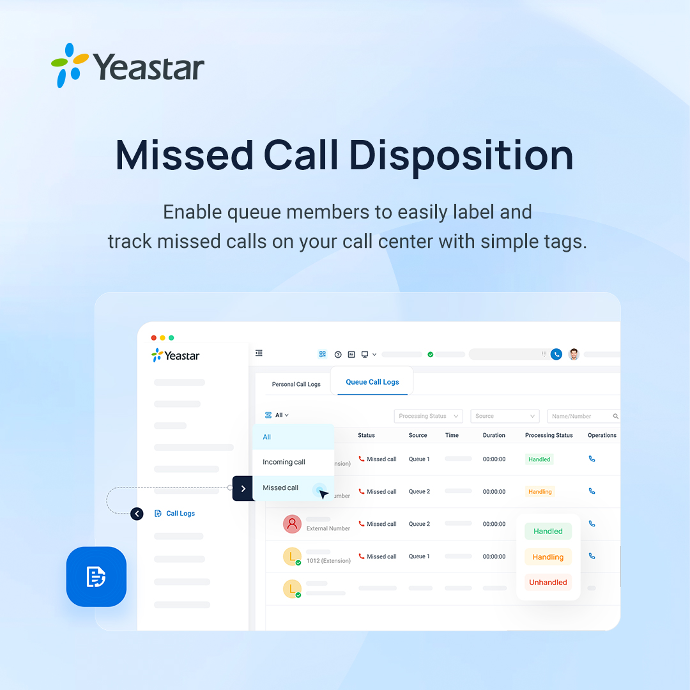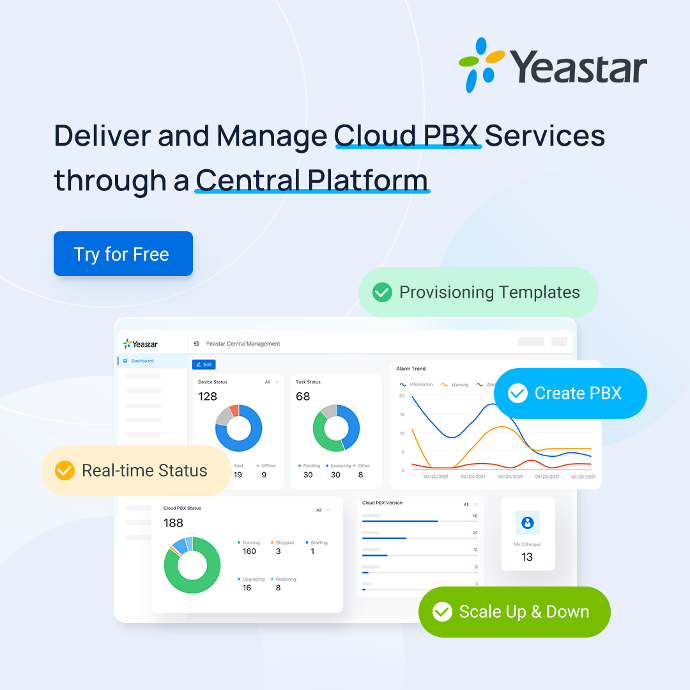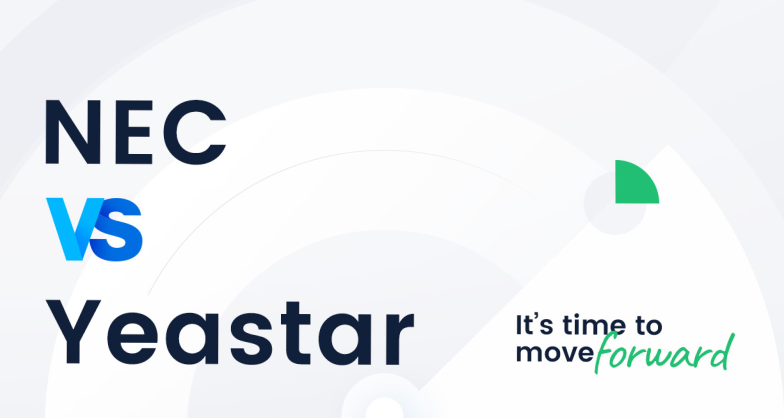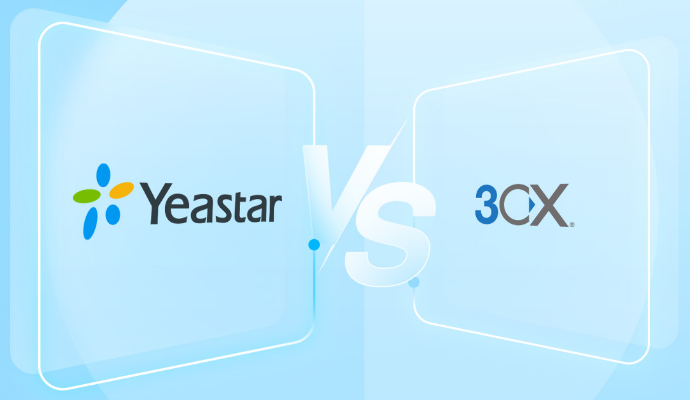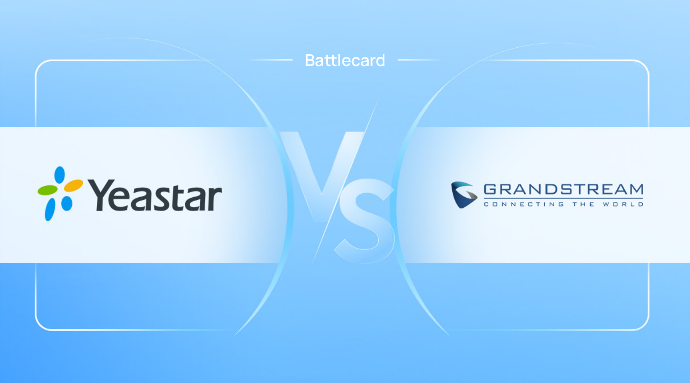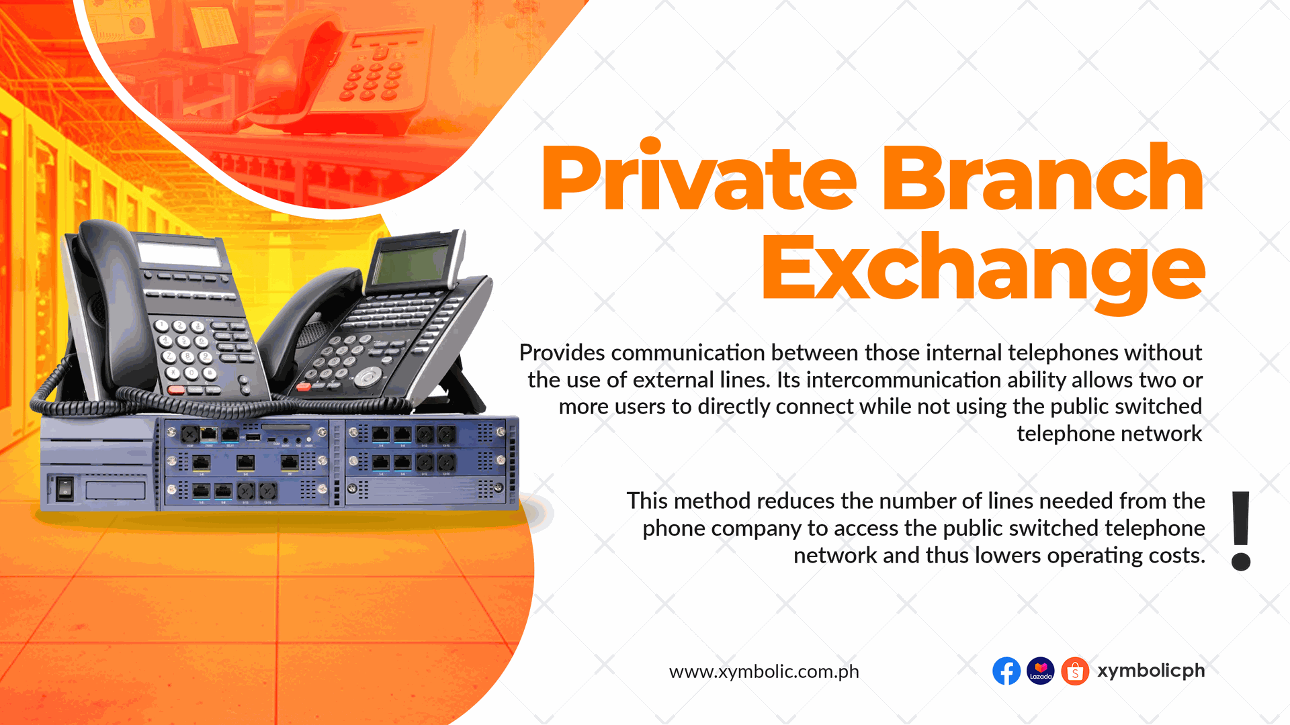
What is a PBX Phone System?
and which one is right for your business.
What is PBX?
PBX stands for Private Branch Exchange. Think of it as an internal telephone network of a business or other entity. PBX phone system users can communicate with one another over the phone via internal lines, and make and receive external calls as well. A PBX phone system usually delivers business telephony features such as call forwarding, call transfer, call queue, auto-attendant, voicemail, etc.
PBX systems operate by using either VoIP (Voice Over Internet Protocol) or via analog or digital phone lines. With a PBX phone system, the physical phone line coming into your business can be split into multiple lines, allowing you to support more telephones. Better yet, calls between users are free.
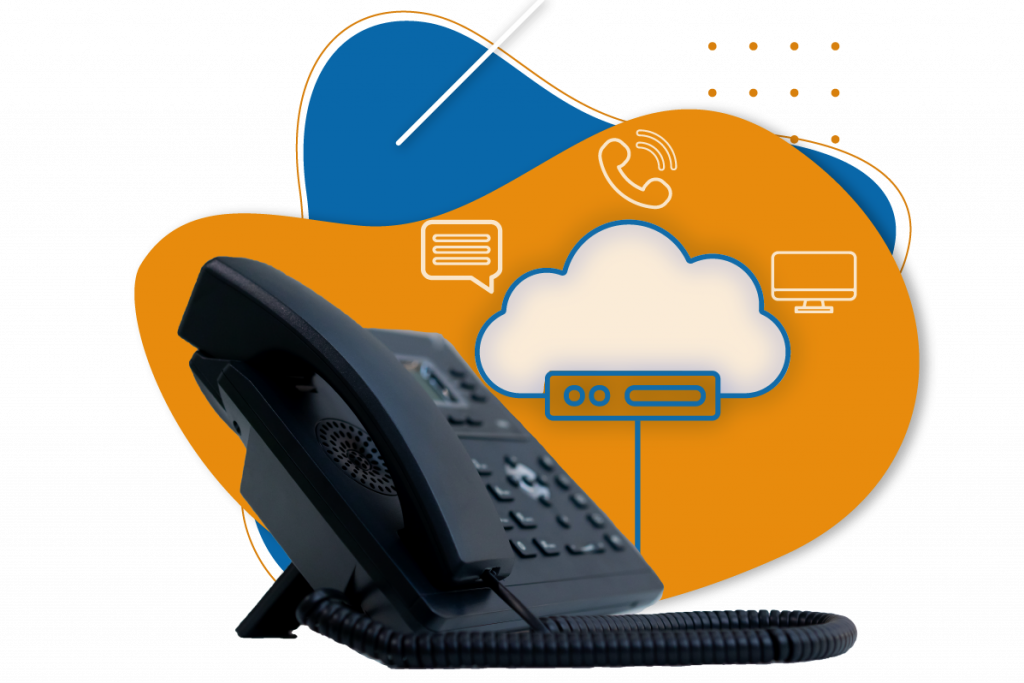
Cloud PBX
also known as hosted PBX or virtual PBX. It is a subtype of an IP phone system. It is running using an internet connection to a VoIP service provider. No on-site equipment is needed other than the physical phones and an internet connection. That’s because all of that is taken care of by the service provider.
All incoming and outgoing calls are routed through the service provider who either transmits the voice to data packets, or hands the call off to a PSTN (public switched telephone network).
To use hosted PBX phone systems, you simply need a broadband connection to the Internet. This option supports multiple telephony devices, including office conference phones and smartphones. It also offers a variety of advanced features.
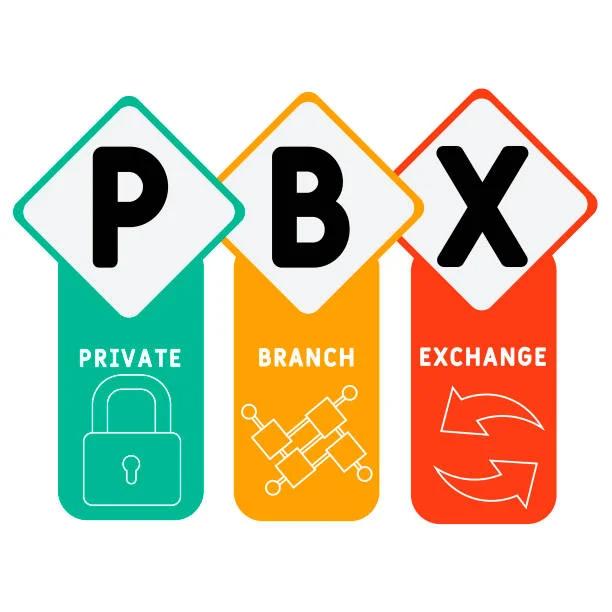
On-Premises PBX
This is slightly different than hosted PBX telephone systems. It still uses voice-over IP technology to manage the business telephone system. However, the servers to manage outgoing and incoming calls are maintained on-site.
The challenge to on-premises PBX is that there is an initial upfront cost of installation and maintenance. Companies that choose this type of phone system will need to have an IT staff that is capable of maintaining it.
However, that cost will go down over time. It protects you from fee raises which results in reduced monthly costs after expenses are covered. On-premises IP PBX also allows users to retain their relationship with an existing phone service provider, and to configure their system internally.
How to choose a PBX Phone System for your business?
Here are something to consider.
Now, you must decide which type of PBX Phone Solutions are best, based on your needs.
Your Infrastructure
The best PBX phone system for your business may depend largely on your current infrastructure. Consider these questions:
- Do you have an in-house IT staff?
- Are they well-versed in telephony concepts such as SIP trunking?
- What solution are you using for telecom right now?
- Which legacy systems do you have to integrate with your new telephony solution?
- Do you work from a single office or many?
Your Size and Projected Growth
Are you an SME or larger? Growing or shrinking? Will you be adopting any sort of technology solutions that will impact the number of lines you need, the type of service you need, or if you will need features like call routing, video conferencing, or mobile worker support?
Your Budgets
There will be some costs with implementing any service. However, depending on your choices, something may be virtually free. For example, a hosted or on-premises VoIP PBX will allow you to add and remove lines easily at no cost. If you stick with an analog configuration, that means physically installation costs as well as paying for the new lines.
Operational Model
How does your business work? Most of your workforce might be in the office most of the time, or you may have plenty of field staff that needs connectivity in the outside world. Do you consider your workforce to be tech-forward, or more traditional?
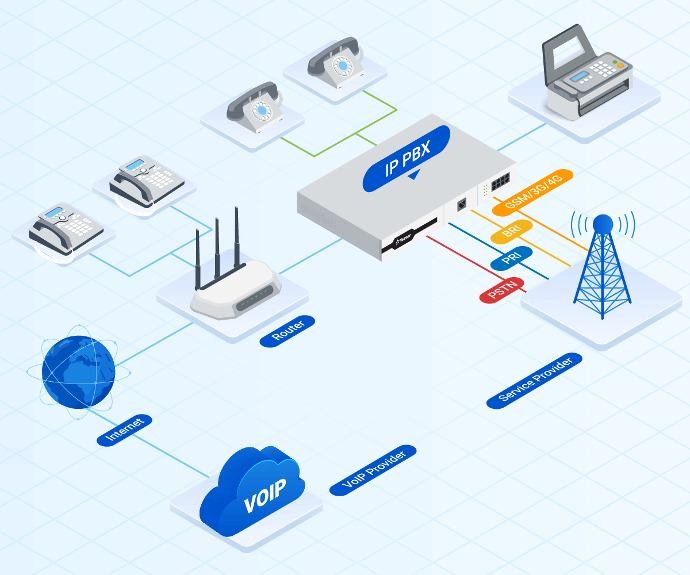
Why XYM?
because we partner with Yeastar PBX Phone System.
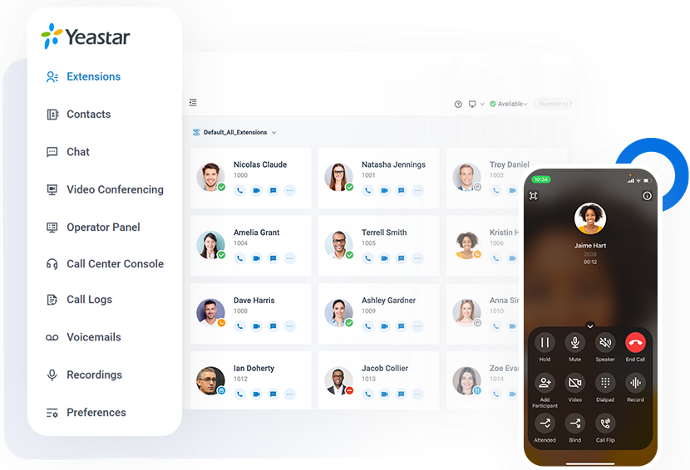
Beyond Limitations: Easy-first Unified Communications, More in One.
For 15 years, Yeastar IP PBX System has served more than 200,000 customers in over 100 countries with flexible, reliable, and powerful business VoIP & unified communications solutions. Yeastar IP PBX phone system is designed to meet various communications requirements from different verticles, either entry-level or more sophisticated ones.
Go beyond just a PBX with all communications integrated as one. Yeastar business phone system is available as cloud, hardware, or software solution to your preference.
Attractive per-call pricing
VoIP takes the job of making phone calls away from physical communication lines. Instead, it makes use of the Internet Protocol (IP) to send and receive calls.
A great option for business on the go
A VoIP app is installed on your smartphone or PC that sends voice calls through the Internet. There is no need for physical phone lines; with VoIP apps, you can use your own devices as office extensions to make and receive business calls and keep your personal cell phone numbers private, as long as you have internet connections.
Wide array of features
It will allow you to use top-of-the line devices while maximizing your use of a variety of features. You can engage with an important client over the phone. You can pick up voicemails that have been automatically converted to text and routed to your email, or forward a voicemail to your entire team.
User-friendly conference calls
Conference calls have become that much easier. Rather than using a limited set of dedicated phone lines, VoIP allows you to create and manage conference calls over a data network.
Improved interactions with customers
VoIP phone solution: give yourself control over where you receive calls. You may even be able to select an option that forwards calls to your home office after a few rings, then to your assistant’s phone if you don’t answer. It’s also possible to have a single call forwarded to more than one device. This ensures that important calls are going to be picked up by someone.
DR compatible solution
If you have a hosted system, all the phone services are delivered to the cloud by your provider. If something really happens to your office and the internet in your workplace goes down, you can just relocate your employees, and they’ll be able to continuously work from anywhere.
Beyond Limitations: Meet Global Standards for Compliance and Data Security.
At Yeastar, we take a multi-dimensional approach to put the safety of your data first. Our 3rd-party certifications and adherence to global compliance regulations speak to our commitment. We keep the network and your data safe at every level with enterprise-grade security, reliability, and privacy.
From basic essentials to dynamic data encryption, we employ rigorous security policies on Cloud communications and put you in control with a comprehensive set of administrative features that defend against security threats and data loss.
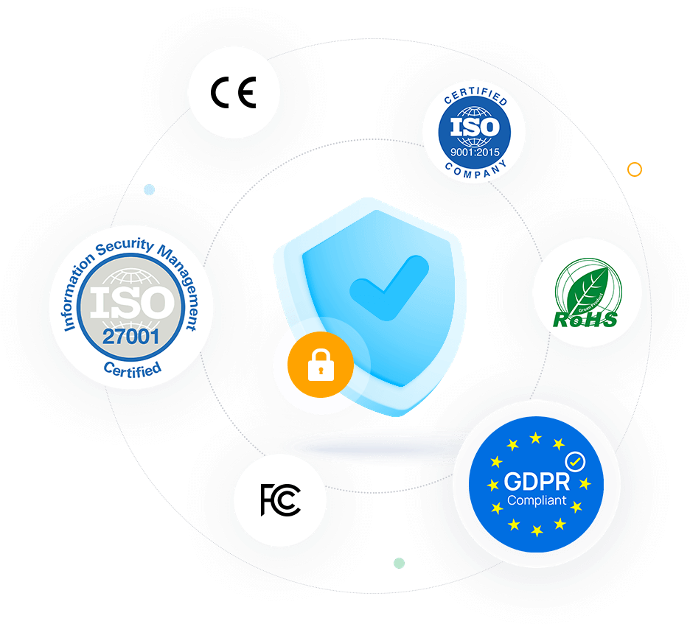
Why Yeastar?
One PBX-Plus-More Solutions.

Why Yeastar?
Product Comparison.
